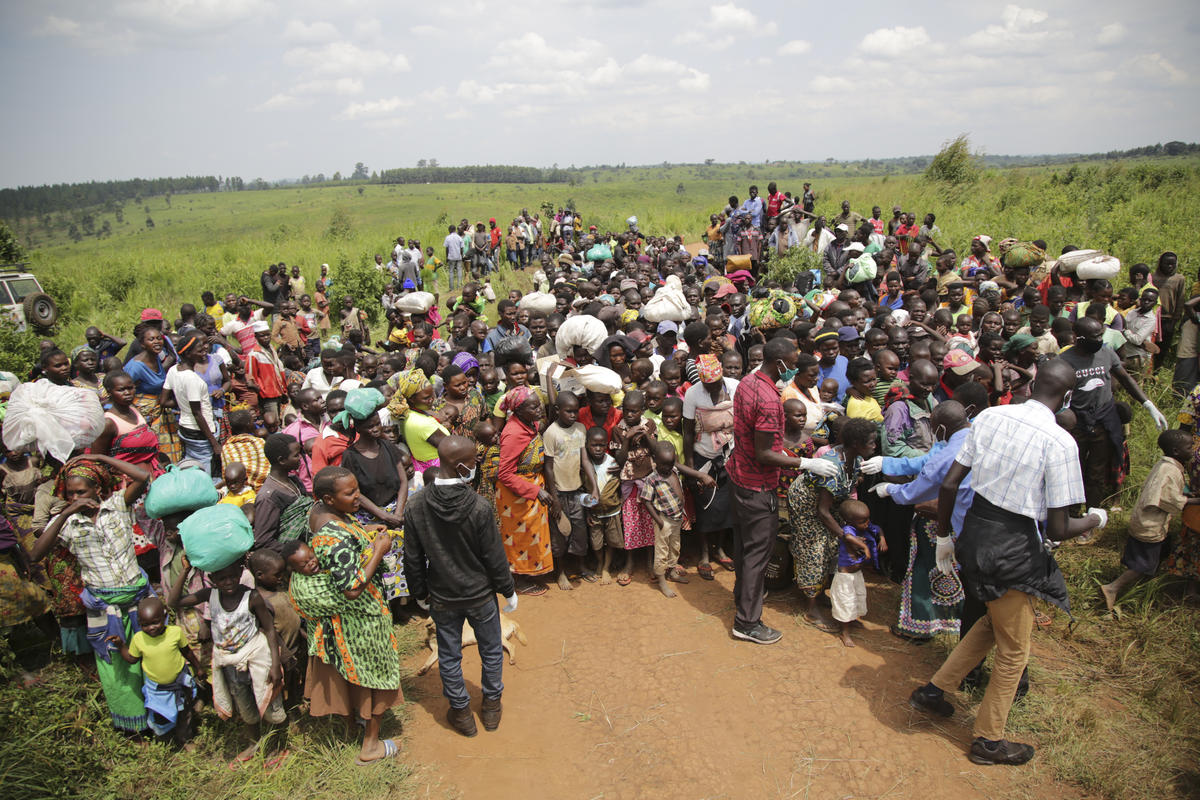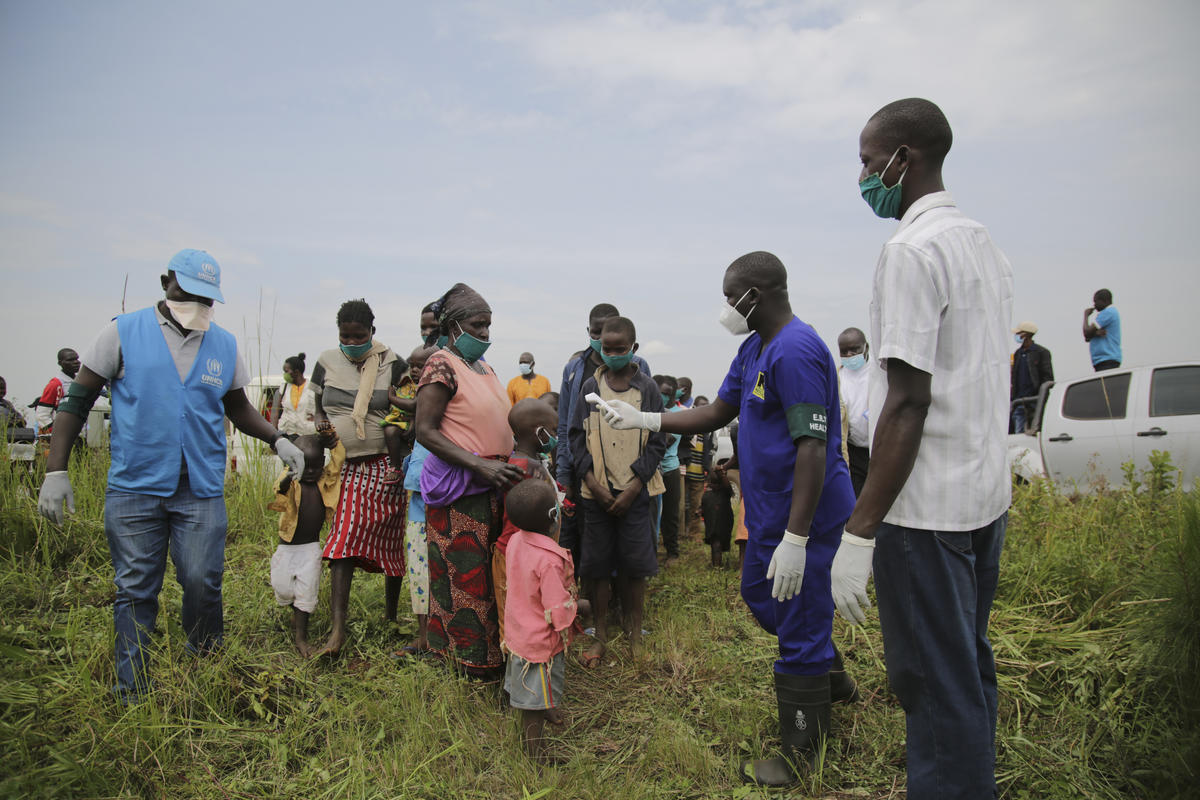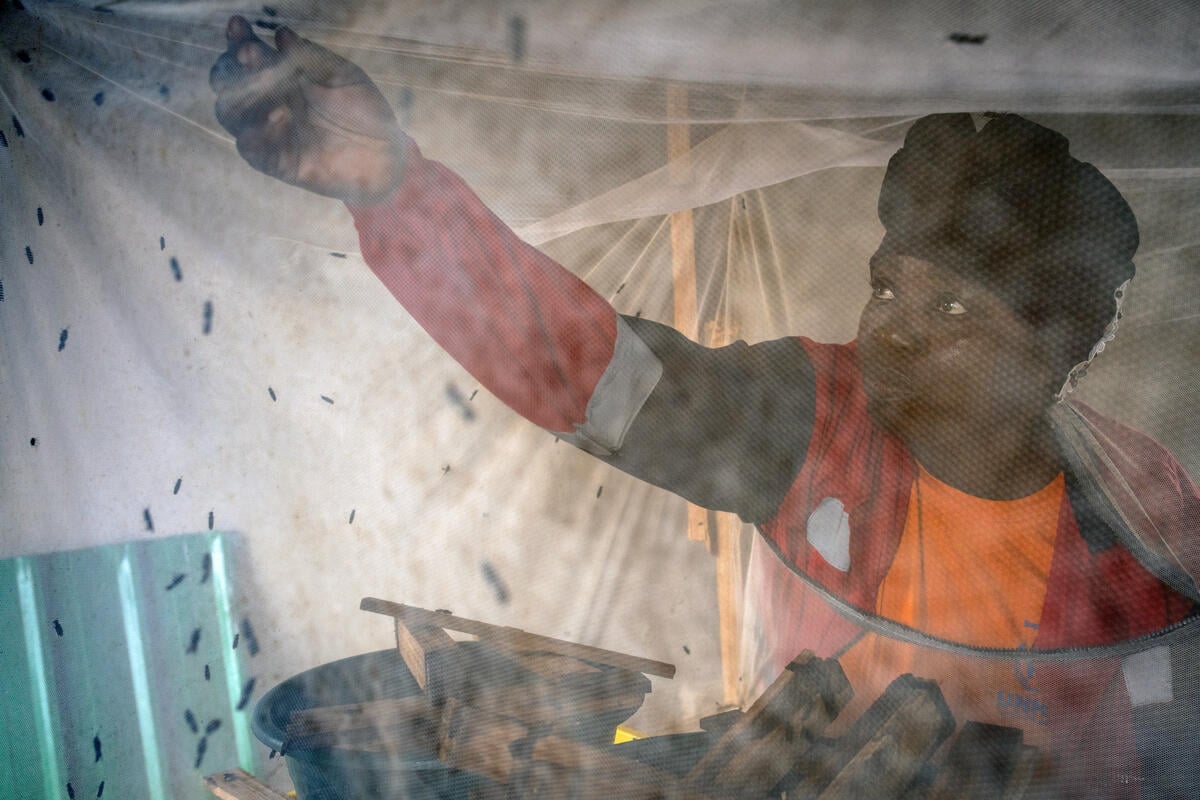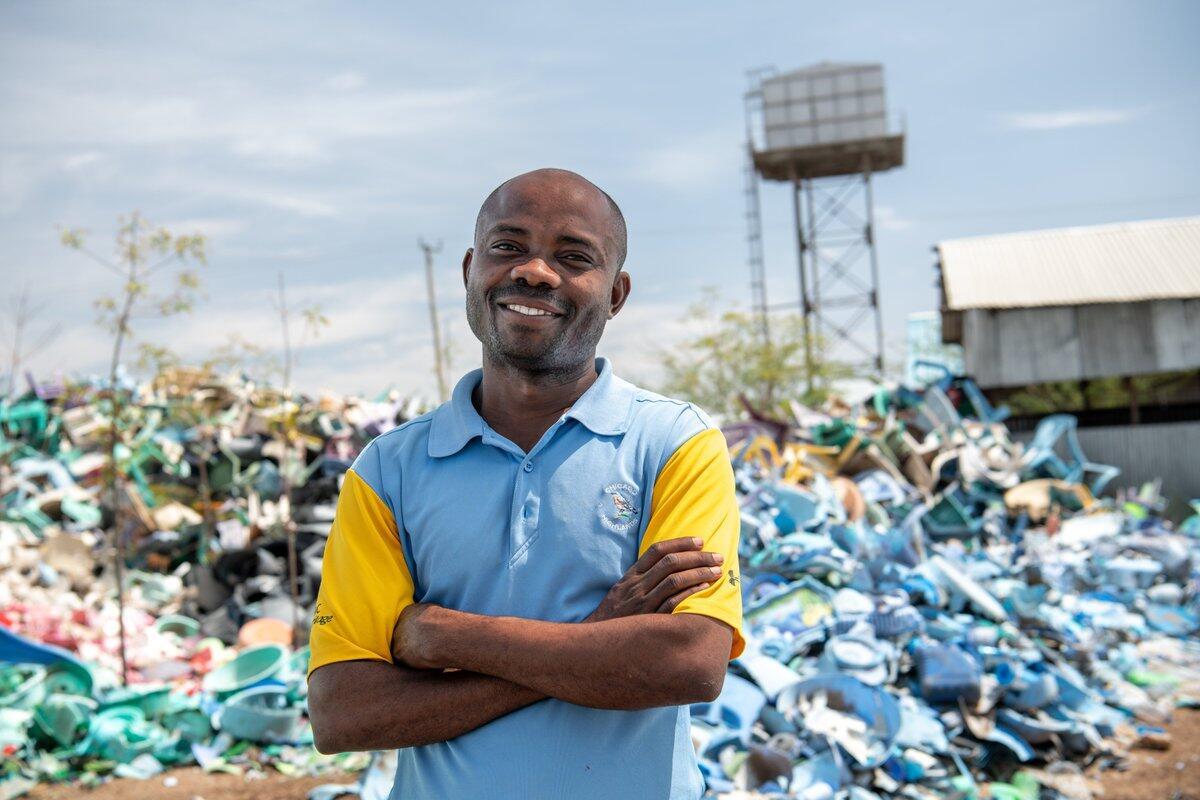Uganda opens border to thousands fleeing Congo violence
She is sick, she is frail and separated from her family. Emmanuelle Ochaya, 56, has been sleeping in a scanty makeshift hut, in the middle of a forest on cold, bare ground for almost one month. The nighttime temperature here drops to 10°C and her only belongings are the clothes she is wearing.
Emmanuelle is among an estimated 45,000 of people who fled attacks in eastern Democratic Republic of the Congo (DRC) that erupted in May. According to community representatives, armed groups began a violent rampage in War-Palara chiefdom, Mahagi Territory, including killings, sexual violence and looting.
"On my way, I saw people being killed, their belongings and houses burnt to ashes, nothing was left untouched.”
When Emmanuelle’s village, Zulu, was attacked by armed militia, houses were set ablaze, her neighbours were killed and she ran for her life. “On my way, I saw people being killed, their belongings and houses burnt to ashes, nothing was left untouched,” she said in a frail voice.
Emmanuelle was part of a group of people who reportedly gathered at the Ugandan border with the DRC seeking safety. They got stranded in a remote and inaccessible area as the borders between the two countries remained closed due to a COVID-19 lockdown that halted the admission of new asylum-seekers into the country.
On Wednesday, Uganda temporarily re-opened two border crossing points, through Guladjo and Mount Zeu in Zombo district, to provide a safe haven with access to life-saving aid and protection to those who remained. Some 1,500 asylum-seekers crossed into Uganda. The border will remain open until Friday once the humanitarian operation is complete and then close again until further notice.
UNHCR, the UN Refugee Agency, and partners, in coordination with the Office of the Prime Minister, the Health Ministry and the district local government, have been working around the clock in Zombo district to strengthen reception capacities, including quarantine facilities, at the border and ensure adequate levels of emergency assistance are available.
All new arrivals undergo security and health screening at the border. Vulnerable individuals like Emmanuelle are fast-tracked for assistance.
Most asylum-seekers who arrived on the first day of border opening were women, children and older people. They were hungry and tired. Many also arrived in a frail state having been in a precarious situation, hiding in the bush for the past several weeks without sufficient access to food, clean drinking water and shelter.
The group will initially be quarantined at Zewdu Farm Institute, 13 kilometres from the border crossing, which can accommodate some 6,000 people. UNHCR and partners have installed tents, health screening areas, toilets, handwashing facilities and water tanks.
Following the mandatory quarantine period of 14 days, in line with national guidelines and protocols, asylum-seekers will be transported to existing refugee settlements. Emmanuelle does not know what the future holds for her in Uganda, but she hopes she will get medical care and enough food to eat. Not so long ago, she was with her extended family of eight children and 26 grandchildren. All of them were working their land and growing their own food.
Today she will join a group of asylum-seekers who will soon receive hot meals, blankets to keep warm and a tent to sleep in.
“The needs are huge and growing.”
With 1.4 million refugees, Uganda is the largest refugee-hosting country in Africa. The arrival of new asylum-seekers is happening at a time when the refugee response is facing multiple challenges due to underfunding, including severe food ration cuts.
With 870 confirmed COVID-19 cases in Uganda, including 52 refugees, UNHCR has been working with the Government and partners to construct and strengthen quarantine and isolation facilities and increase handwashing supplies and availability of maks as part of the response plan.
Joel Boutroue, UNHCR's Representative in Uganda, welcomed and commended the country’s decision to open it's doors yet again for people fleeing for their lives.
“It proves that even in the midst of a global crisis like COVID-19, there are ways to manage border restrictions in a manner which respects international human rights and refugee protection standards," he said.
Many of UNHCR’s transit and reception facilities across the country have been converted into institutional quarantine centres for the district, offering additional support for hundreds of Ugandans and refugees on a daily basis.
“The needs are huge and growing,” added Boutroue.












